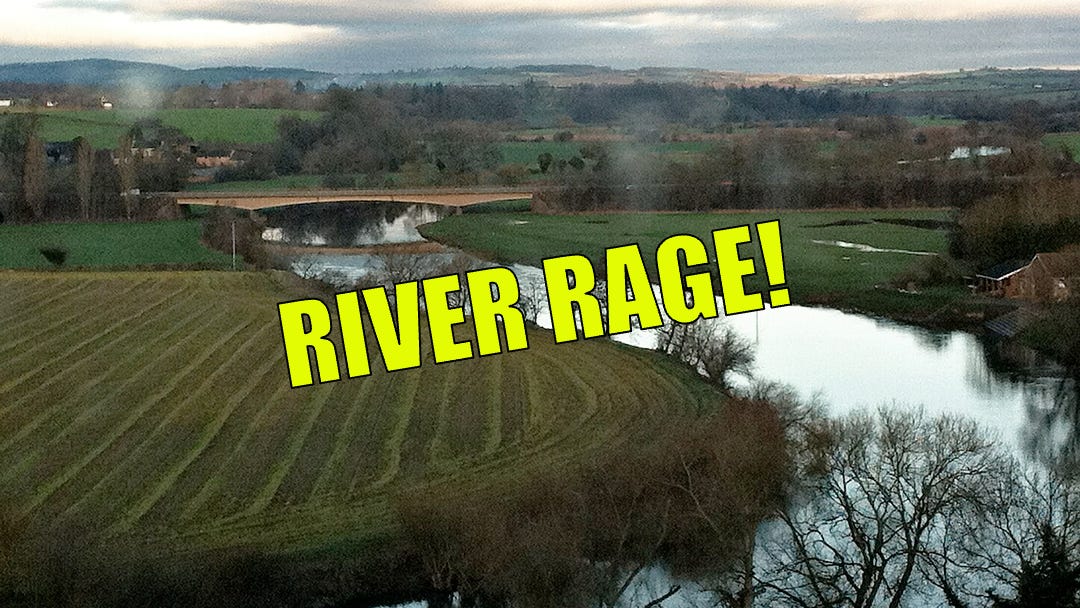River rage: Thousands join biggest-ever environmental lawsuit over filthy British waterways
Locals blame chicken farms and sewage spills for slimy rivers as High Court battle begins
Britain’s once-pristine rivers have become the scene of an extraordinary legal showdown as nearly 4,000 furious residents take on major poultry producers and a water company in the largest environmental lawsuit in UK history.
The claim, filed at the High Court, accuses Avara Foods Limited, Freemans of Newent Limited, and Welsh Water of causing “extensive and widespread pollution” across the Wye, Lugg and Usk rivers—waterways cherished for their beauty, wildlife and recreation.
Locals say years of pollution have wrecked livelihoods, slashed property values and destroyed their enjoyment of the countryside. They are demanding a major clean-up and substantial damages for the devastation.
Wildlife under threat
Among the claimants is wildlife filmmaker Justine Evans, who has watched the River Wye’s once-clear waters turn into a murky mess.
She said she had noticed a “stark decline” in the Wye’s condition in recent years. “It’s horrible to think what has happened to the wildlife it is home to,” she said.
Former Olympic swimmer Roland Lee, who moved near the Wye for its open-water swimming, now warns others to stay away. “I’d actually go as far as to warn people against going in,” he said.
Another claimant, Gino Parisi from Raglan, Monmouthshire, said he had grown up around the River Usk when it was crystal clear. Now, he says, the water has become “mucky and cloudy”, with “build-ups of foam in a number of spots”. He added: “Not only would I feel uncomfortable going in, but I’d also have concerns for my health.”
The rivers at risk
The River Wye, stretching 155 miles from mid-Wales to the Severn Estuary, has become symbolic of Britain’s growing water pollution crisis. An estimated 23 million chickens—around a quarter of the UK’s total production—are raised within its catchment area.
Its tributary, the River Lugg, flows through Herefordshire, while the River Usk winds through the Bannau Brycheiniog National Park and into the Bristol Channel. All three are protected for their rare wildlife, including otters, salmon and freshwater pearl mussels.
Locals and campaigners blame run-off from farmland, including poultry manure and sewage discharges, for choking the rivers with phosphorus, nitrogen and bacteria—leaving fish and other creatures struggling to survive.
Fight for justice
The firms at the centre of the case strongly deny the allegations.
A spokesperson for Avara Foods said it shared public concern for the Wye’s condition but insisted the legal claim was “based on a misunderstanding”. “No manure is stored or spread on poultry-only farms that supply Avara Foods,” they said.
Welsh Water said it had spent £70 million on the Wye and £33 million on the Usk in the past five years to improve water quality, claiming, “Pollution from other sectors has increased significantly.”
Leigh Day’s Oliver Holland said, “In a context where government and regulators have failed to prevent the degradation of our rivers, the court has become the last avenue for justice”.
As the High Court prepares to hear the landmark case, locals are hoping it will finally force Britain to face up to a national scandal of polluted rivers—and give the country’s waterways the clean bill of health they desperately need.




I stopped kayaking on the River Medway after one too many paddles finding human waste churning in my (foamy) wake. Haven't kayaked on it for three years. If treating our common inheritance as an actual sewer isn't a crime I don't know what is.